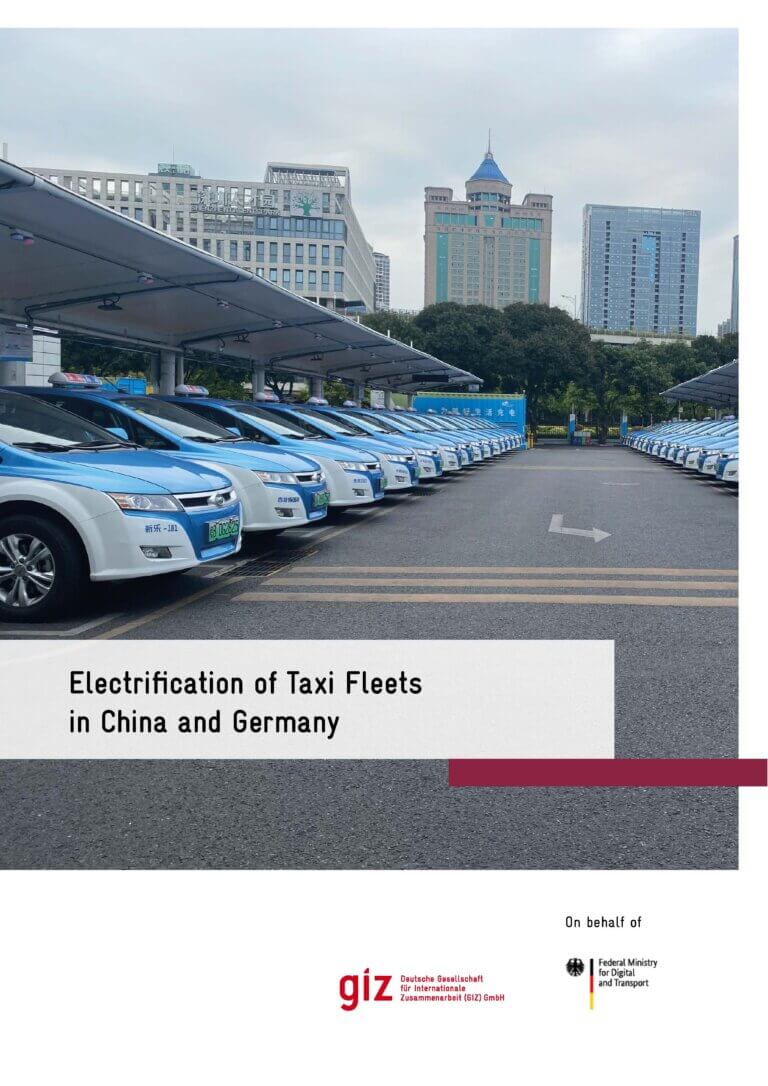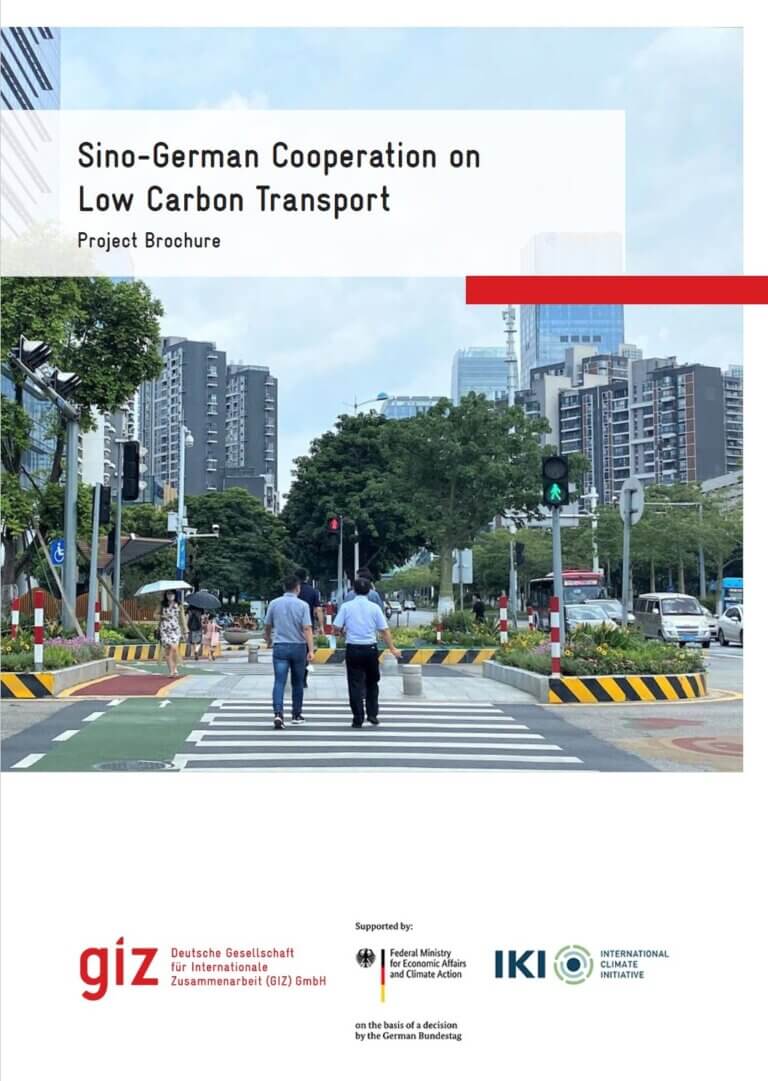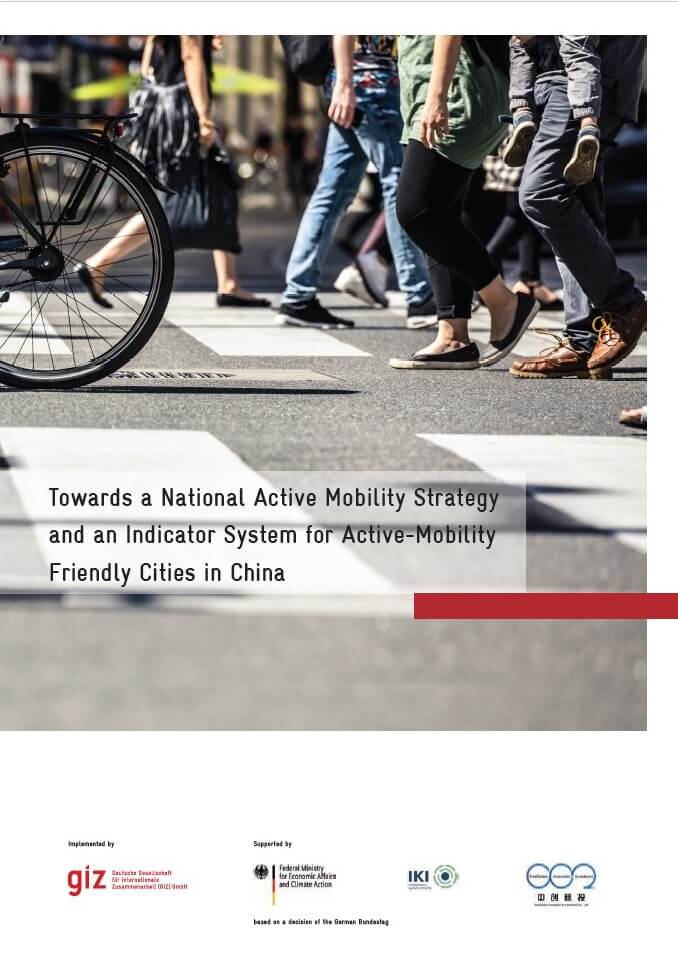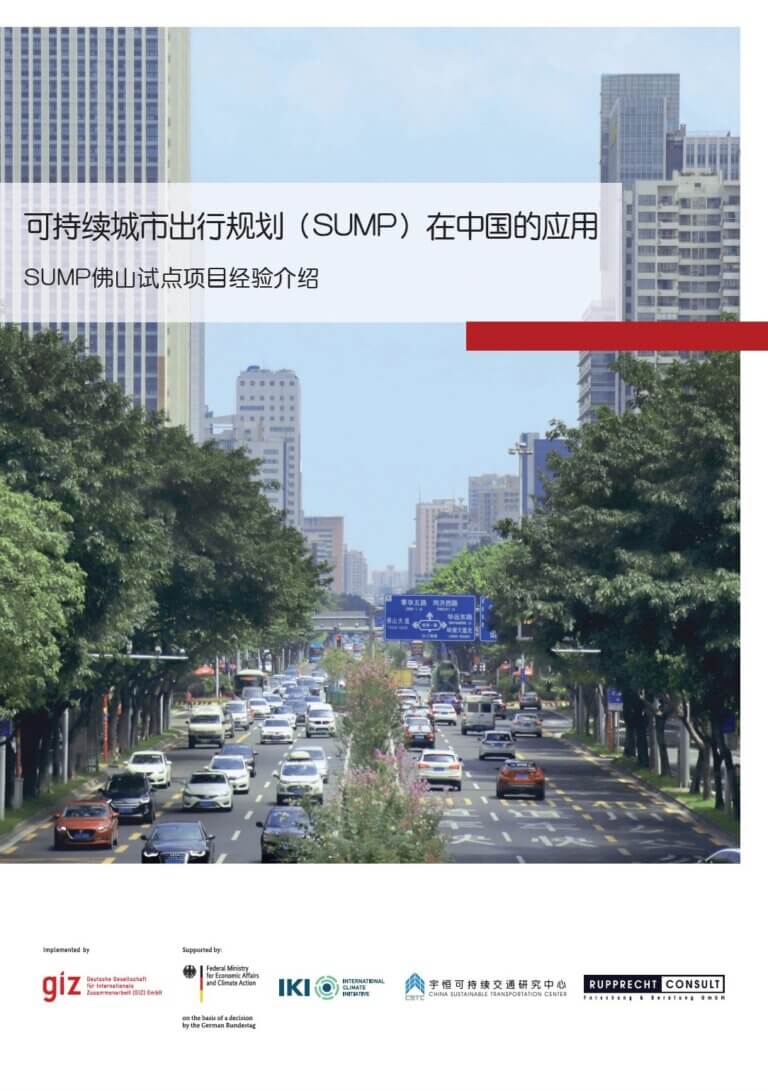The electrification of large vehicle fleets, especially taxi fleets, is a necessary component for achieving international and national climate targets. This measure can also make an important contribution to reducing particulate matter and noise pollution in cities. In China, local governments are increasingly intervening in the design of urban taxi fleets through regulatory measures by setting binding specifications for the size of the vehicle fleet and the drive technologies to be used. With Taiyuan and Shenzhen, China is home to the first two cities in the world to have fully electrified their taxi fleets at a rapid pace with the support of government incentives. Even though these rapid conversions were made possible through the political framework conditions in China, it is still possible to derive generally applicable operational and political findings for Germany.
In the course of the implementation of the project „Sino-German Cooperation on Mobility and Fuels Strategy as a Contribution to the Transport Transition“ of the Deutsche Gesellschaft für Internationale Zusammenarbeit (GIZ) GmbH, this report presents approaches to the electrification of taxi fleets using the example of major Chinese and German cities. The key findings of this report indicate that, in order to make rapid progress in the sustainable transition of taxi fleets, the charging infrastructure required for electric vehicles must be expanded, the introduction of a label for electric taxis, and measures to limit new registration of taxis to those with electric engines, provided this is within the legal framework, should be examined.






